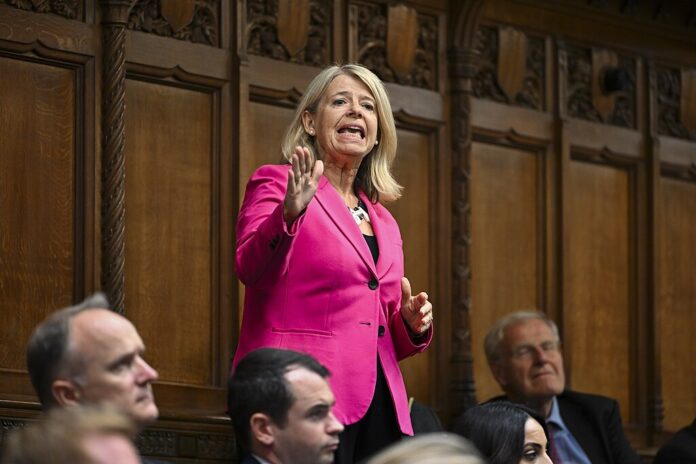The UK government examines 37 businesses amid claims of ineffective sanctions following the invasion of Ukraine
The UK government is investigating 37 businesses linked to the UK for potentially violating sanctions imposed on Russian oil, as revealed by the BBC. These financial sanctions were enacted by the UK and other Western nations following Russia’s invasion of Ukraine in 2022. Despite the ongoing investigations, no fines have been imposed to date.
Dame Harriett Baldwin, the Conservative shadow foreign office minister, highlighted that the sanctions were designed to “shut down the sources of finance for Russia’s war machine” and hasten the end of what she described as an “illegal invasion.” However, critics have pointed out that the sanctions appear to be ineffective, especially given recent figures indicating growth in the Russian economy.
While the identities of the businesses under investigation remain undisclosed, sources suggest that some may be maritime insurance firms. The Treasury has stated that it will take action where appropriate, but has acknowledged the complexity of these cases, which can prolong the investigation process.
Embed from Getty ImagesThe sanctions include a price cap on Russian oil, aimed at ensuring oil continues to flow without allowing Russia to reap substantial profits. Under this cap, British businesses are prohibited from facilitating the transportation of Russian oil sold at prices exceeding $60 per barrel.
Data obtained through Freedom of Information requests shows that since December 2022, the Treasury has launched investigations into 52 UK-connected companies suspected of breaching this price cap. As of August, 37 investigations remain active, while 15 have concluded without any fines being levied.
Dame Harriett expressed concern that there might be more proactive measures that the government and the oil sector could undertake, noting reports that UK importers are still bringing in oil with origins traced back to Russia.
The anti-corruption organisation Global Witness criticized the lack of enforcement actions, describing the oil price cap as “a sort of paper tiger” that fails to effectively combat violations. Louis Wilson, head of fossil fuel investigations at Global Witness, urged for “bold action” against companies breaching sanctions. He argued that if the UK government prevents British businesses from facilitating “Putin’s profiteering,” it could prompt others to follow suit.
Investigations into potential breaches of the oil cap and other financial sanctions are conducted by the Office of Financial Sanctions Implementation (OFSI), a Treasury unit that received an additional £50 million in funding in March to bolster enforcement efforts. However, Wilson pointed out that companies under scrutiny often find it “pretty easy” to procure documents that absolve them of wrongdoing, describing these as mere “promises” that can be obtained even if the company has been involved in transporting oil sold above the price cap.
Wilson also noted that there is a hesitance on the part of the US to tighten Western sanctions further, fearing that strict enforcement could halt the Russian oil trade and consequently drive oil prices higher. Dame Harriett emphasized the need for OFSI to impose financial penalties when deliberate wrongdoing is identified.
In response to the ongoing investigations, a Treasury spokesperson stated that enforcement action would be taken “where appropriate” and reassured that the government is “putting sanction breachers on notice.” The spokesperson added that the price cap has successfully reduced Russia’s tax revenues from oil, citing data from Russia’s finance ministry indicating a 30% drop in revenues last year compared to 2022.
In February, the former chair of Parliament’s Treasury Select Committee initiated an inquiry into the effectiveness of the sanctions on Russia. Dame Harriett reported receiving evidence suggesting that the oil price cap is being evaded through the refining of Russian oil in refineries, underscoring the ongoing challenges in enforcing sanctions effectively.
